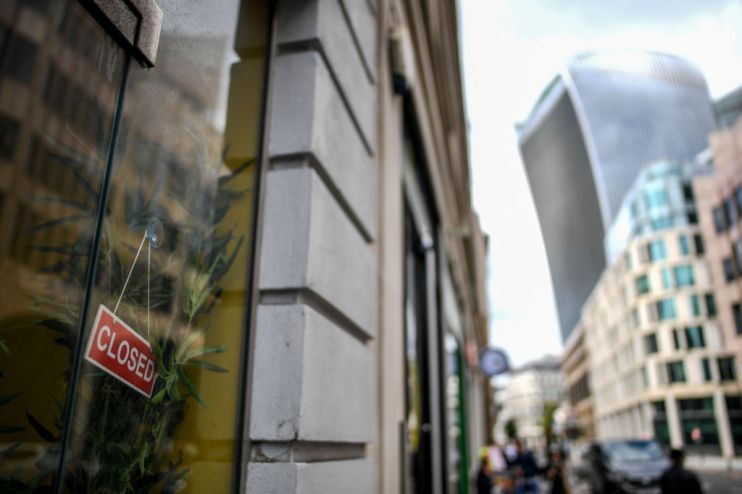FTSE 100 slips but US stocks rise amid Covid worries

The FTSE 100 slipped but US stocks rose as European stocks headed for their worst week since June, with investors rattled by rising coronavirus cases.
London’s blue chip index was down 0.1 per cent to 5,819 points as it approached the close, despite having opened higher. The FTSE 250 was up 0.8 per cent, however.
Read more: Rishi Sunak ‘ready to do more’ if national Covid lockdown declared
Germany’s Dax slid 1.3 per cent and France’s CAC 40 was down one per cent.
However, in the US the Nasdaq rose 0.8 per cent in early trading. The S&P 500 was up 0.3 per cent.
The FTSE 100 tumbled around three per cent along with European stocks on Monday, as investors fretted over rising Covid cases and potential new lockdowns.
It then rose for two consecutive days – analysts said the UK’s new restrictions were less bad than expected – before slipping again yesterday.
“It’s not taken long for sentiment to turn sour again in Europe, with stock markets once again heading south having been quite flat earlier in the day,” said Craig Erlam, senior market analyst at currency firm Oanda.
FTSE 100 travel stocks take a hit
FTSE 100 travel stocks were hit particularly hard amid rising coronavirus cases, although they staged a late rally.
The action was limited compared to some of the swings seen earlier in the week.
Fawad Razaqzada, market analyst with ThinkMarkets, said: “It has been quite a risk-off week for the financial markets amid concerns over the recovery following an alarming rebound in coronavirus cases in Western Europe.”
US stocks opened higher after a minor tech rally last night helped Wall Street.
The US’s tech-heavy Nasdaq rose 0.4 per cent yesterday while the S&P 500 climbed 0.3 per cent.
Investors hope for stimulus
“US Fiscal stimulus hopes boosted the mood in the market in late trade on Thursday,” said Fiona Cincotta, market analyst at trading platform City Index.
Democrat speaker Nancy Pelosi laid the groundwork for a roughly $2.4 trillion (£1.9 trillion) bill yesterday. Time is running out as lawmakers leave Washington, DC next week to campaign for reelection.
Read more: Government borrowing jumps in August as Covid costs grow
“The election could increasingly become a point of concern for investors,” said Erlam. “It’s already not going to be a normal election, with the votes taking much longer than normal to count [and] the possibility of [President Donald] Trump contesting the result.”